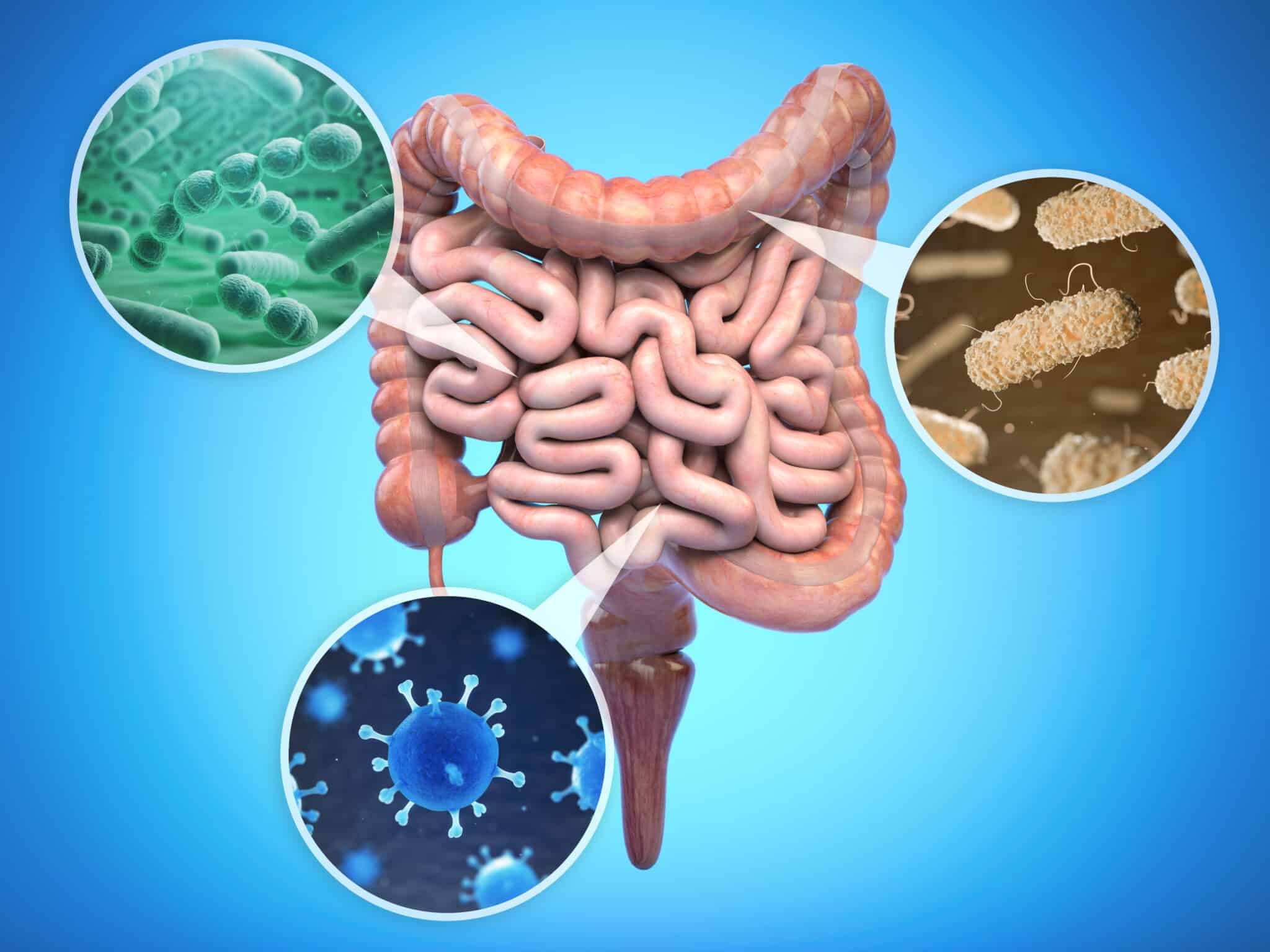Probiotics and Digestive Enzymes: Dynamic Friends or Problematic Foes?
A very common question we get in our industry is “Can probiotics be taken with digestive enzymes?” Like many people on the road to improving their health, they utilize different nutrient strategies to optimize health.

As an example, some work with a foundation of a multi-vitamin, and combine it with specialty nutrients. Many people I know have their own regimen that works for them; for instance, I take Gut Comfort, ubiquinol, methylB12, and a vitamin D product.
Whatever your dietary plan, let’s look into dynamics of Digestive enzymes and Probiotics – can they be combined? Are they antagonistic? What are they to each other?
There are 11 organ systems in the body, and the Gastrointestinal System is one of them. Certainly, it is special that that probiotics and digestive enzymes work together to keep this system running healthy.

Data Source: https://toxtutor.nlm.nih.gov/08-003.html
Not only are they working symbiotically in our gut, but microbes and digestive enzymes are often found in some foods. An excellent example is Kefir. The quintessential fermented food, and a sibling of yogurt, Kefir, is a fermented milk product that also contains digestive enzymes including lipase, proteases and lactase – the same enzymes you might find in a digestive enzyme dietary supplement.
But, this example does not mean that enzymes and probiotics are best friends forever. As we covered in our last Blog (Which Myth Will We Lay to Rest This Time?), the talented strains that comprise the Probiotics universe are a bit fickle. They don’t like heat shock. They prefer packaging where oxygen is at a minimum. Understanding their stability in different environments needs significant testing. Let’s simply say they need special handling.
And, so it is that a significant amount of consideration is required before mixing probiotics with other supplements. People know that, in general, stomach acids work against the stability of the probiotics. Therefore, you can automatically consider that some supplements like Glucosamine Hydrochloride and Betaine Hydrochloride would not do well when combining with probiotics – when the hydrochloride is released in the gut, it will counter probiotics.
Let’s look at this topic from the perspective of the digestive enzyme. When do you take your digestive enzymes? Commonly, they are recommended with meals to help the digestive process. If you didn’t have digestive enzyme supplements, what would your body typically do?
The body’s pancreatic enzymes are typically hitting the food in the first phase of the small intestine. The small intestine is comprised of the D., J. and I. – which are the Duodenum, the Jejunum, and the Ileum. The duodenum is the first phase of the small intestine and is the site where secretions from the liver (bile) and pancreas (pancreatic juices) are exposed to the partially digested foods.
Pancreatic enzymes are secreted to digest the major 3 food structures: Proteases (trypsin and chymotrypsin) to break down proteins, Lipases to break down lipids, and amylases for digestion of carbohydrates. Therefore, exogenous enzymes – like those in a supplement – will be taken at the time of meal consumption to do their intended activity.
On the other hand, it is often said that the ideal time to take a probiotic is after your meal. The rationale is that after a meal, the pH levels goes up to 4-5 (an indication that acidity has gone down). Stomach pH is low (meaning acidity is higher) in between meals. So, with generic probiotics, it may be better to consumer after a meal so that their escape an acidic stomach. This is not correct recommendations for Floradapt probiotics.
Floradapt strains have been specially selected to survive under harsh gastrointestinal tract (GI) conditions, including exposures to acids and bile. Floradapt strains can be taken and at any time, with or without food. To be thorough, we did a scan which did not reveal any prospective studies utilizing human oral probiotics and enzymes.
For certain, we have not done any co-nutrient studies with Floradapt in combination with an enzyme. But, based on the stability work and clinical testing that we’ve done with Floradapt strains, we are confident that you can utilize our Floradapt products in addition to your regular digestive enzyme!


